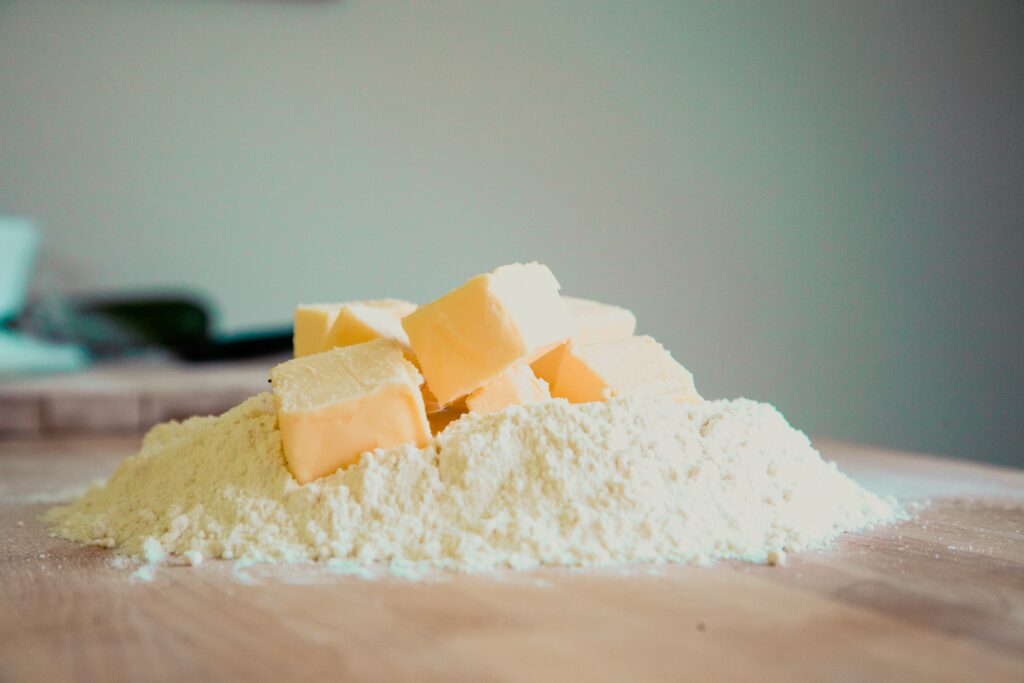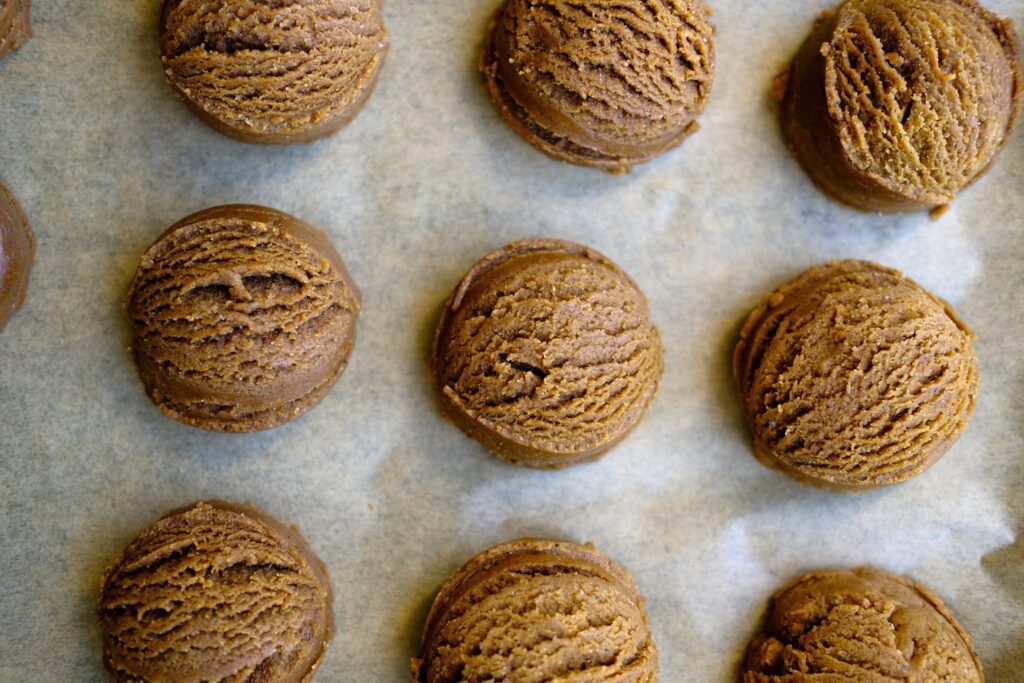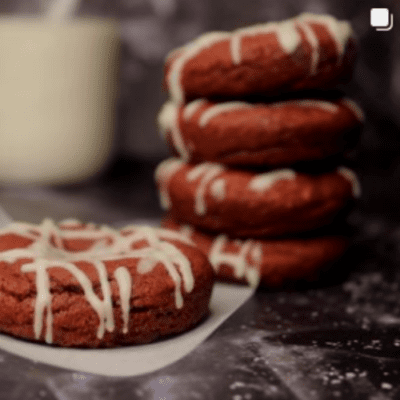There are so many types of cookies and an infinite number of flavor combinations, but making a really good cookie just boils down to using quality ingredients that you love and keeping the following things in mind.
- Use room temperature ingredients
- Mix everything evenly
- Chill the cookie dough
- Give the cookies enough space to bake
- Slightly underbake the cookies
- Keep the cookies on the pan for 2-3 minutes after baking
- Finish with a coarse sea salt
- Other Useful Cookie Information:
#1 – Use room temperature ingredients

To incorporate the ingredients properly and create a uniform texture, butter, eggs and flour should all be room temperature before attempting to combine them.
#2 – Mix everything evenly
The best results come from a cookie that has everything spread evenly throughout the dough. You don’t want come cookies coming out completely different than others within the same batch. So cream your butter and sugars together thoroughly. Give your dry ingredients a whisk before adding them to the wet. Make sure any chocolate chips, nuts, or other add-ins are mixed in well to get every single flavor in every single cookie.
#3 – Chill the cookie dough

After whipping up your dough, give the ingredients time to really come together and the butter time to solidify. Pop the dough into the fridge for at least 30 minutes and up to 24 hours. If you bake while the butter is still warm, the cookies will spread too quickly in the oven.
#4 – Give the cookies enough space to bake
We don’t want them to spread too much, but most cookies will spread some. Give them 2 inches of space on the baking sheet to allow for this spread without them bumping into one another. Or use a muffin tin to keep the cookies contained as they bake and spread.
#5 – Slightly underbake them
Because the cookies will continue to cook for a minute or so after you remove them from the oven, it’s okay to underbake them if you like them soft. Pay more attention to the edges of the cookie than a timer. When the edges are crisp and golden brown, they are done.
#6 – Keep the cookies on the pan for 2-3 minutes after baking
This will keep the cookies from falling apart by creating a thicker crust on the bottoms and making it easier to move them to the cooling rack without them crumbling to pieces.
#7 – Finish with a coarse sea salt

Salt was added to the dough to balance the flavors, but finishing with a very light sprinkling of sea salt will take your cookies up a notch. Adult cookies are finished with salt. You can add this touch before or right after baking. Just a pinch will do.
Other Cookies Information
Ways to prevent excess spread (while baking)
- Chill the dough before baking
- Use a silicone mat or parchment paper to reduce greasiness and spread
- Never preheat a cookie sheet before baking
- Add the proper amount of flour. Under-measuring the flour will leave the wet ingredients with nothing to bind with and cause cookies to spread faster while baking
- Avoid over-creaming the butter & sugar. Over-creaming will result in butter that is too warm and cause excess spreading during the baking process
- Using a muffin/cupcake tin to bake your cookies will keep them all the same exact size. Make sure to spray each well thoroughly so you can get them out after baking.
The best way to bake more than one pan at a time
This isn’t recommended because the center of the middle rack is ideal for baking a tray of cookies, but in the interest of time, more than one tray can be baked at once.
Switch the pans’ positions halfway through the bake time. Ovens have hot spots, and you want all of the cookies to end up getting the same amount of heat to bake evenly.
How to store cookies & cookie dough
To store cookie dough: Wrap in plastic wrap so that there are no pieces of the dough exposed to the air. Wrap 2 or 3 times, if necessary. Keep In the refrigerator for up to 2 weeks.
To store cookies that have been baked: Keep in an airtight container on the counter for 3 to 5 days.
To freeze cookie dough: Freeze drop cookie doughs (chocolate chip, snickerdoodle, oatmeal, peanut butter, etc.) by chilling the dough slightly and portioning into small balls. Line a freezer bag with parchment paper and fill with cookie dough balls then label and freeze. It will be good for 9 to 12 months frozen.
When it is time to bake, you can add the cookies directly to the preheated oven and bake for the given amount of time plus 2-3 minutes.
For cookie cutter dough like sugar and gingerbread cookies, the entire ball of dough should be wrapped tightly in plastic wrap and then frozen. You can even double up the protection by wrapping it in aluminum foil or placing it inside a freezer-safe ziploc bag.
When you need to use it, thaw overnight in the refrigerator, roll out then cut into shapes and bake.
If this list helps you at all and you end up making a batch of cookies at home, please feel free to DM or email us any pictures. I’d love to see ’em!
Join us Saturday, February 6, 2021, on Instagram for a live cookie-making class to learn more.





Leave a Reply